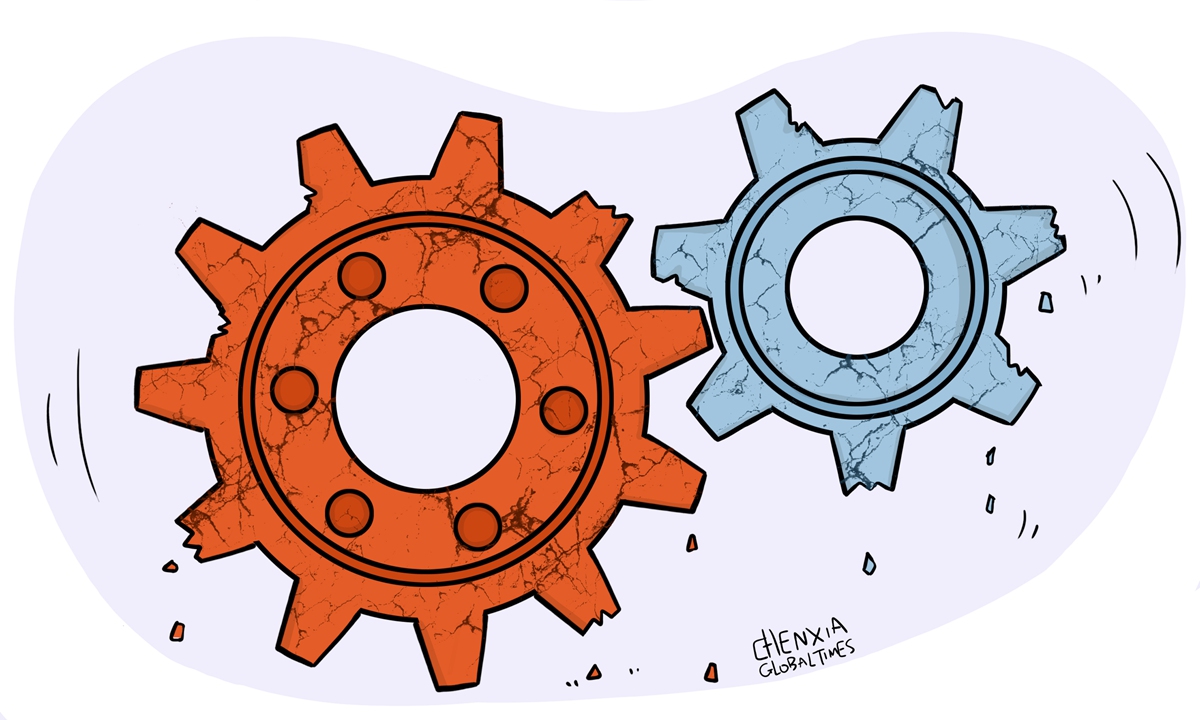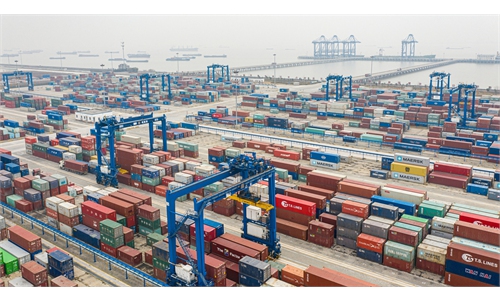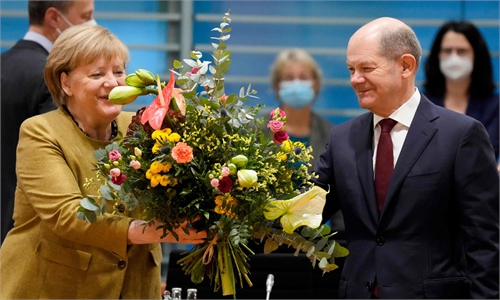
Illustration: Chen Xia/Global Times
Germany's trade balance was pushed into deficit as exports fall in May, data from Federal Statistical Office of Germany (Destatis) showed. Germany's political and business leaders warned that the country was facing its "biggest economic crisis for decades," according to the Financial Times.When reporting on the current challenges facing Germany's economy and trade, some Western media outlets have chosen to shift blame to the Russia-Ukraine conflict or China's battle with Omicron. Deutsche Welle claimed that China's strict epidemic prevention measures had led to production and logistics interruptions, which have had a direct impact on German-Chinese trade.
Although the surge in energy prices caused by the Western sanctions against Russia and the impact of the epidemic on the global supply chain may indeed have some impacts on Germany's economy and trade, it is untenable to attribute the current difficulties to external causes and accuse China. The main reason for Germany's trade imbalance is rooted in the problems within its own economy. Last month, Germany's BDI industry association reduced its forecast for German economy in 2022 to 1.5 percent and warned recession risks, Reuters reported. Industry insiders have also recently warned exports downturn especially for auto, machinery and technology sectors.
For a long time, while many Western countries suffered industrial hollowing out to varying degrees, Germany's stress on industrial strength and manufacturing is undoubtedly successful. However, the problem with "Made in Germany" is that the country relies too much on traditional industries such as machinery, automobiles, and chemical industries, and lacks rapid adjustment to the shift of the world economy's industrial focus in the age of digital economy.
For example, Germany lags behind the US, China, Japan and South Korea to a certain extent in the combination of traditional manufacturing and the emerging internet sector. It also lags behind China in cutting-edge technologies such as 5G. Although German automakers maintain strong competitiveness, they lag behind Tesla in terms of industrial chain construction and technology development in the field of new energy vehicles.
In comparison, although China's manufacturing industry also faces many problems, it is now in a critical period of transformation and upgrading. Taking the automobile industry as an example, some forecast China's automobile exports may exceed Germany this year to become the second largest auto exporter of the world. A rapid recovery in Chinese manufacturing shows that "Made in China" will not be affected by Western badmouthing.
For the German economy, the tough time may have just begun, and due to energy shortages, German exports will likely be hit even harder. To avoid a recession and to avoid further damage to the "Made in Germany" image, the nation needs to take practical measures to solve the problems encountered by the manufacturing industry, and make greater efforts to upgrade the industry and promote trade.
The author is an editor with the Global Times. bizopinion@globaltimes.com.cn



